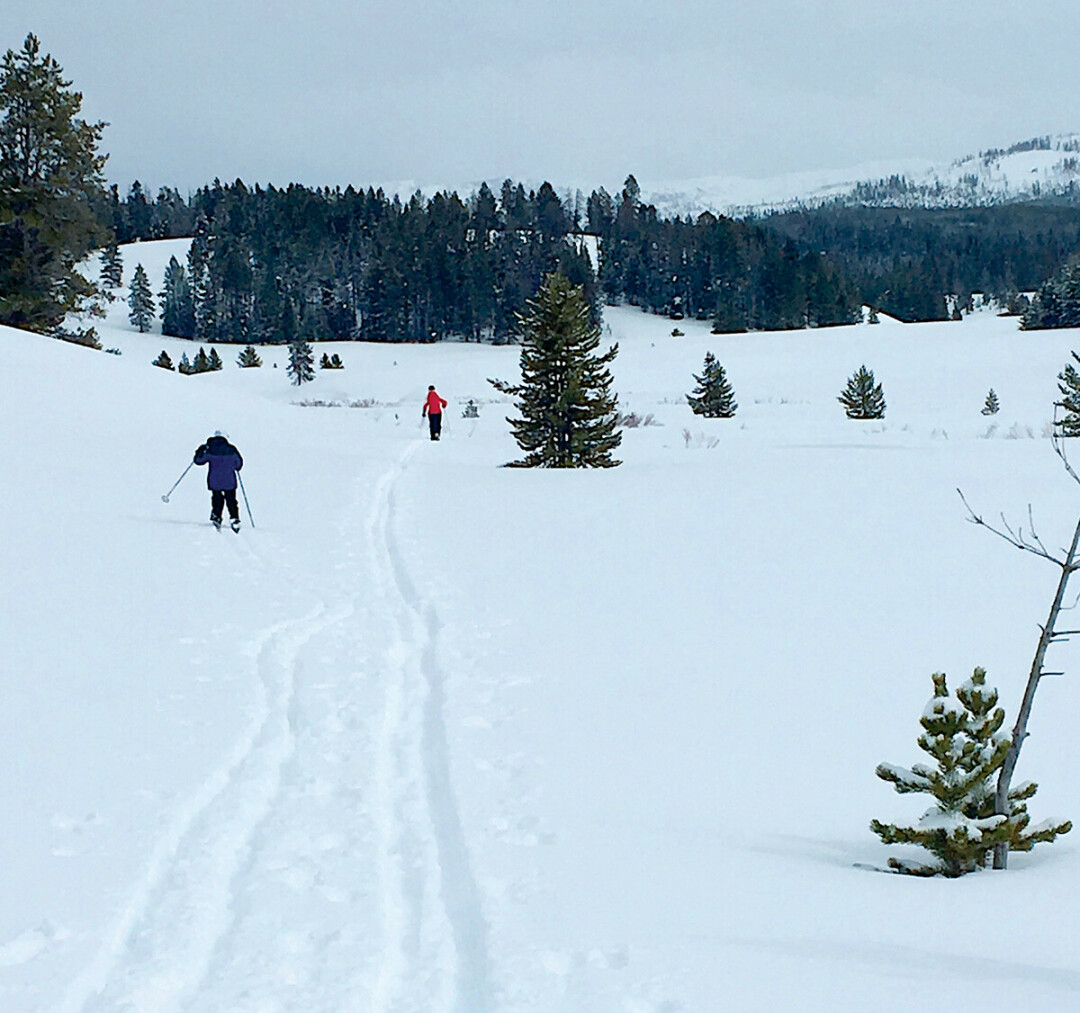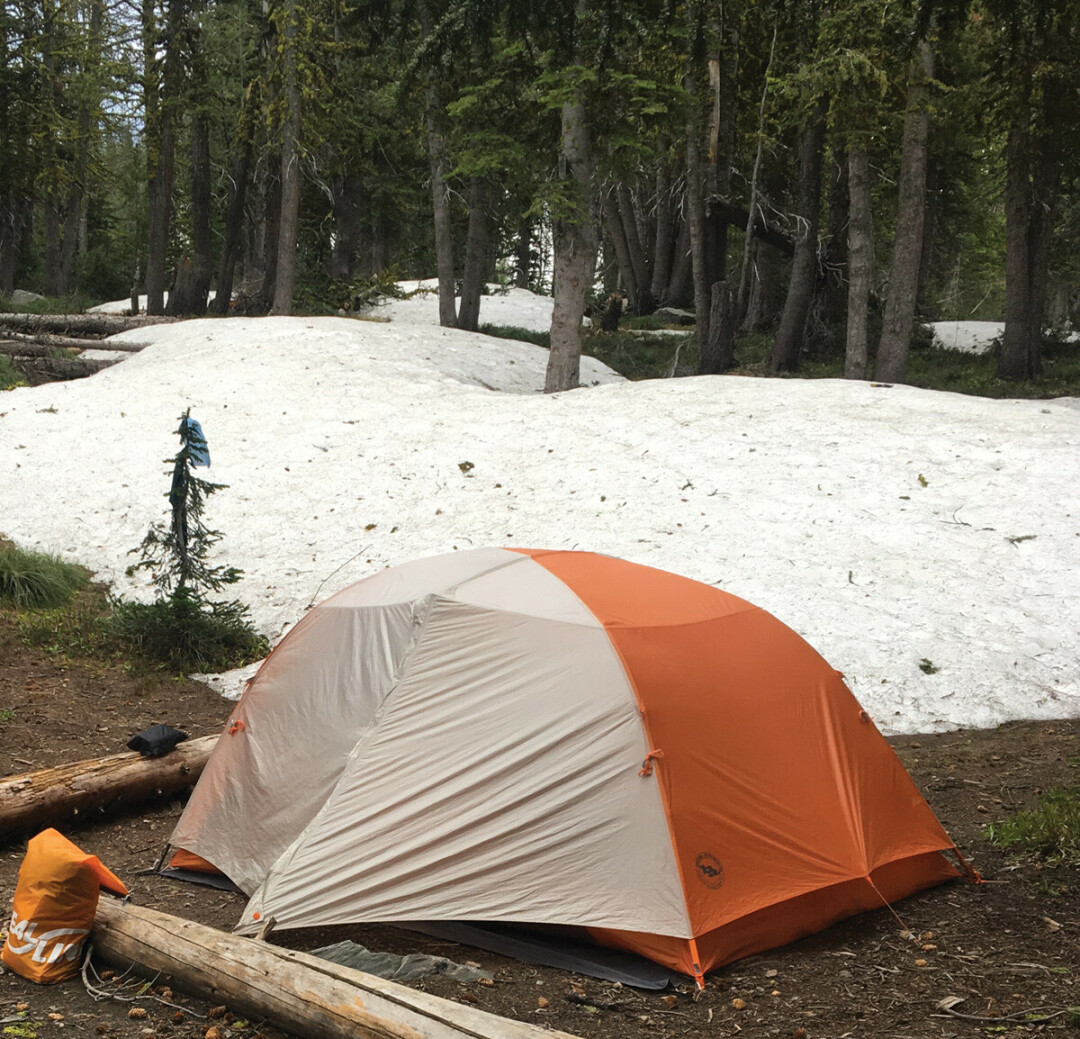Peaks, Peace and Poetry
Kevin Brustuen | Sunday Nov. 1st, 2020
“When despair for the world grows in me
and I wake in the night at the least sound
in fear of what my life and my children’s lives may be,
I go and lie down where the wood drake
rests in his beauty on the water, and the great heron feeds.
I come into the peace of wild things
who do not tax their lives with forethought
of grief. I come into the presence of still water.
And I feel above me the day-blind stars
waiting with their light. For a time
I rest in the grace of the world, and am free.”
-Wendell Berry (The Peace of Wild Things)
The long week had ended, but what did it matter? Covid-19 was still running wild, recent court rulings indicated our public lands were endangered, and the doctor said the biopsy result was malignant. The weather was cold, winter was in its first stages of surrendering to spring, snow still lay deep in the mountains. But when Saturday morning came, the sun broke through the gray ceiling of low clouds, and we decided we had to go somewhere, get out of the house, walk, hike, ski – anything to escape 2020, even temporarily.
We called our ‘quarantine buddies’ and they both wanted to join us. Shortly we were headed up into the hills, uncertain if we were skiing, snowshoeing, or simply walking. But we were out. At our selected trailhead, we parked the car and saw footprints in the mud heading up the mountain, so we left the skis in the car. We hiked for a mile before we ran into ‘wading snow,’ but kept pressing on for another mile through intermittent snow, wet trail, and ice, before we found what we were looking for: some south-facing rocks free of snow. We basked in the sun with a view to the south that opened up across miles and miles of mountain peaks, ridges, and dark swatches of valleys – a beautiful, stunning view.
Climbing up onto the rocks, we quickly found comfortable perches for ourselves and reverently took in the view for a few silent minutes before we spoke. Then, one of our small group started reciting the above poem by Wendell Berry while the others listened intently, soaking up the solitude and, like chlorophyl-filled leaves turning sunshine into energy, we turned these words and the beauty around us into peacefulness and contentment. One after another, we took turns reciting memorized poetry, reading poetry written on scraps of paper tucked into a corner of a daypack, or poetry written by one of our own. Thus began a tradition that continued the rest of the winter, spring, and through the summer into fall, combining hiking and skiing with poetry in the mountains. Like Wendell Berry said, “For a time I rest in the grace of the world, and am free.”
Tranquility and freedom come with the energy spent in experiencing nature through hiking, skiing, biking, fishing, or climbing in the mountains. In much of the intermountain west, perhaps especially here in the Bozeman area, one has to embrace the seasons in order to manage our climate. When it’s winter, you ski, snowshoe, or ice climb and when it’s summer you hike, fish, bike, or climb. But you are out in the natural world, benefiting from clean air, exertion, and the distance from daily worries that such retreats bring.
Recently, the trails are often crowded with hikers, bikers, runners and backpackers, decreasing the solitude one desires when out in nature. It is a double-edged sword, because on one hand, it feels good to see people take to nature, enjoying the physical aspect of trail exertion and learning to love trees, rocks, plants, and animals. On the other hand, it’s a bit disconcerting to wonder if you’ll find a place to park at the trailhead, or if you’ll find any solitude at all, or have to share the trail with the conversation of those in front of you or behind you, getting stuck in a trail walk that puts you at the same speed as those in front or the party behind you.
Conservation journalist Todd Wilkinson asks in a recent article in the Mountain Journal from August 7, 2020, “How is the blind promotion of more outdoor recreation on public lands, without knowing the cumulative effects, any different from the colonizing, destructive forces of Manifest Destiny?” Wilkinson goes on to talk about what he calls “the rise of ‘the outdoor recreation industrial complex’—a form of conspicuous consumption based on landscape use that is as impactful as traditional resource extraction and likely more permanent.” It brings more people to these beautiful areas, building new housing, crowding public lands, and filling the trails with more residents and tourists, taking away more of the solitude we so crave in our nature excursions.
Yet the beauty and access to the mountains is what has brought so many of us here in the first place, regardless of how long we have lived here. And having so many more people recognize and participate in outdoor recreation certainly helps build allies in our quest to preserve nature, control development, and save our public lands.
This past summer, I spent a week backpacking along the Continental Divide trail, often running into through-hikers, that is, hikers who are walking the length of the trail from border to border. I quickly discovered that these through hikers were different in so many good ways. Interacting with them was to experience a community of like-minded people who were seeking wilderness experiences in solitude found in nature’s remote places.
One cold February week a few years ago, I put on my skis and headed up into the Spanish Peaks with supplies for a couple nights out in the backcountry on my back. Around midnight, I woke up to the coyotes howling just outside my tent on a bright, cold moon-lit night. The snow was crisp and the sound of the coyotes’ feet crunched in the snow as they trotted past my tent, yipping and barking to the full moon. I lay in my tent listening as they paused just a few feet from me, separated by a thin sheet of nylon, as they sniffed and yipped, before trotting on. As they moved on past my campsite, I raised the corner of my tent door enough to see their shadows playing out across the snow, moving shades in the brilliant light of the moon upon the crystal snow. It was a moment of peace, a moment of feeling the harmony of being part of the natural world. As I snuggled back down in my sleeping bag that night, I realized how much humans need nature, and need to know that feeling of being part of a larger ecosystem to be whole.
As I drifted back to sleep I was reminded of the lines in the poem Peace by the 19th century English poet Bessie Rayner Parkes:
All natural things both live and move
In natural peace that is their own;
Only in our disordered life
Almost is she unknown.
And the malignancy is in retreat. All is well in the world.
| Tweet |
